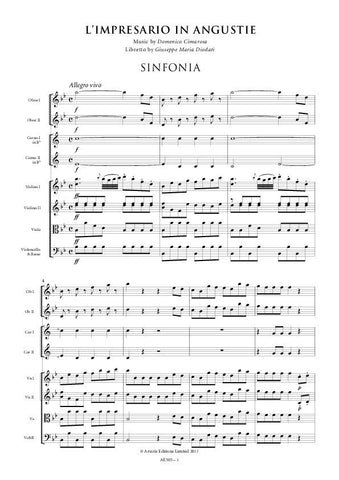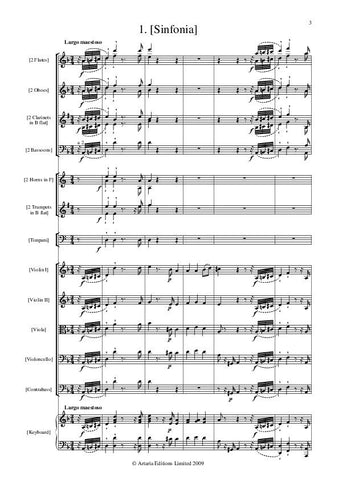Dibdin, Charles: Hassan; or, The Spoilt Favourite A Comic Opera in Two Acts (AE666) – sheet music
Previous Product Next Product
Description |
Dibdin, Charles (1745-1814)
|
||||||||||||||||
Details |
Hassan; or, The Spoilt Favourite, an unproduced manuscript with a complete libretto and full score, based on “The Story of Abu Hassan, or, the Sleeper Awakened” from the anonymous collection of tales, One Thousand and One Nights, first published in English in 1704. Charles Dibdin was no stranger to the practice of adaptation – the transformation of subject matter, characters, situations, and dialogue from its original source into another work – which had been the stock-in-trade for dramatists since Thespis stepped out of the dithyrambic chorus in a mask portraying a different character. Greek playwrights adapted myths; their medieval progeny dramatized the Bible; Shakespeare adapted Holinshed, Plutarch, the commedia dell’arte, Boccaccio, and Saxo Grammaticus; and as Richard Hornby persuasively noted in Drama, Metadrama, and Perception, dramatic writing is not only an imitation of life, it is foremost an imitation of other plays. It is no surprise, then, that Charles Dibdin should argue in his Complete History of the Stage (1800) that there is no harm in borrowing, for “Every author has a right to imitate whatever he is capable of improving” (5:160). Provided with only a rudimentary musical education in his youth, Charles Dibdin was highly influenced by Italian opera composers whose galant style of composition he borrowed to create an indigenous musical theatre sound, based on simple, easily accessible harmonies and pulsating rhythms, with engaging melodies that were capable of capturing a dramatic situation more effectively than those of composers with better musical training. Although he was harmonically conservative and firmly rooted in basic diatonic harmonies (tonic, subdominant, and dominant), Dibdin created melodies that ranged from folk-like simplicity to heavily elaborated coloratura, always displaying an expert command of vocal techniques (breath control, phrasing, register changes) and dramatic necessity.Adhering to the typical makeup of the eighteenth-century English theatre orchestra, Dibdin scored Hassan for four woodwinds: either two oboes, two flutes, or two clarinets, and two bassoons, which typically doubled the violoncello parts, but were also used as solo instruments; two horns, pitched invarious keys; and strings. Dibdin wrote no parts for percussion, trumpet, or keyboard, even though he may have expected the orchestra leader to conduct from one. |
||||||||||||||||
Score Preview |




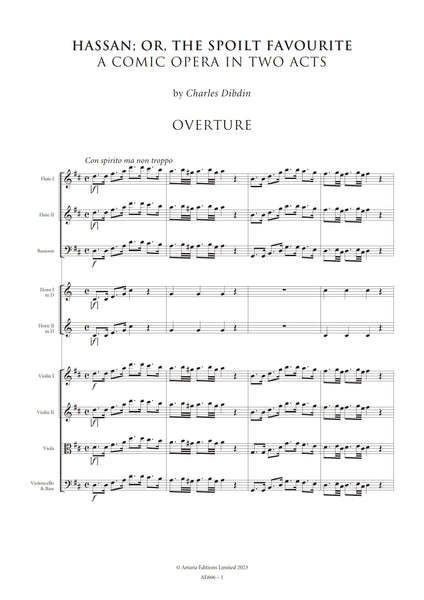
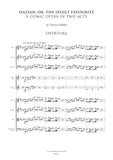
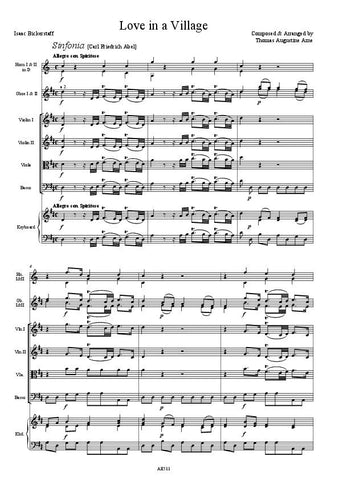

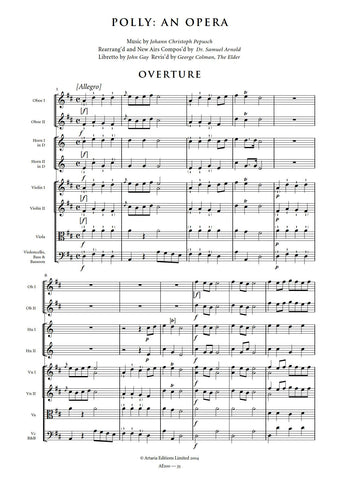
![Arnold, Samuel: Polly [Vocal Score] (AE100/VR)](http://www.artaria.com/cdn/shop/products/AE100_Vocal_Score_A4_1_large.jpg?v=1571438515)
